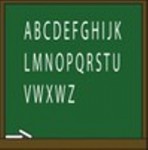 It’s possible that highly effective teachers make the greatest difference in student academic performance. Research has shown that some highly effective teachers bring about gains in their students, year after year, that are above average.[1] Once large data sets allowed researchers to identify highly effective teachers, studies moved on to determine what characteristics made them so effective.
Research about teacher effectiveness has become more and more important as our educational system becomes more sophisticated and complex and the stakes of student success (and failure) grow. There is a growing demand for teachers with the abilities to have a large impact on the education of their students.
There are two critical challenges with finding and/or developing effective teachers, however. The first challenge is uncertainty about what characteristics effective teachers share. Recent research has identified effective teachers (usually using test scores) and then searched for shared characteristics or use general qualities associated with effectiveness and apply them to teaching. For example, Stanford University says effective teachers are organized, analytic, dynamic, and interactive.[2] Another study found students prefer teachers who are respectful, responsive and knowledgeable.[3] A recent blog synthesized some of the literature and found common themes - Defining Teaching Effectiveness.
The second challenge is in identifying the best way to measure teacher effectiveness. While test score data is a wonderful resource for identifying outliers (teachers who consistently deliver exceptional results, year after year), its high-stakes, single-point-in-time nature also makes it susceptible to fraud or anomalies, such as the recent cheating scandal in Atlanta.[4] More comprehensive and nuanced evaluations can minimize these risks. For example, student achievement can be combined with classroom observations teacher content knowledge and perceptions held by students, parents and peers, such as the system developed in Memphis schools. (Define and Measure Effective Teaching). In early 2000, Cincinnati Public Schools developed a Teacher Evaluation System (TES), to observe individual teachers in their classrooms, by trained peer evaluators who have also scored high in TES performance, every fifth year. Teachers are evaluated based on their instructional strategies and content knowledge. In 2011, a study was conducted to discover the effect that top-scoring teachers had compared to their lowest-scoring peers (Evaluating Teacher Effectiveness). Students assigned to high-performing teachers did better than their peers on standardized tests.
What methods are your local schools taking towards improving teacher effectiveness? Do you have any insightful methods of effectiveness evaluation? Please comment or share any ideas you may have!
It’s possible that highly effective teachers make the greatest difference in student academic performance. Research has shown that some highly effective teachers bring about gains in their students, year after year, that are above average.[1] Once large data sets allowed researchers to identify highly effective teachers, studies moved on to determine what characteristics made them so effective.
Research about teacher effectiveness has become more and more important as our educational system becomes more sophisticated and complex and the stakes of student success (and failure) grow. There is a growing demand for teachers with the abilities to have a large impact on the education of their students.
There are two critical challenges with finding and/or developing effective teachers, however. The first challenge is uncertainty about what characteristics effective teachers share. Recent research has identified effective teachers (usually using test scores) and then searched for shared characteristics or use general qualities associated with effectiveness and apply them to teaching. For example, Stanford University says effective teachers are organized, analytic, dynamic, and interactive.[2] Another study found students prefer teachers who are respectful, responsive and knowledgeable.[3] A recent blog synthesized some of the literature and found common themes - Defining Teaching Effectiveness.
The second challenge is in identifying the best way to measure teacher effectiveness. While test score data is a wonderful resource for identifying outliers (teachers who consistently deliver exceptional results, year after year), its high-stakes, single-point-in-time nature also makes it susceptible to fraud or anomalies, such as the recent cheating scandal in Atlanta.[4] More comprehensive and nuanced evaluations can minimize these risks. For example, student achievement can be combined with classroom observations teacher content knowledge and perceptions held by students, parents and peers, such as the system developed in Memphis schools. (Define and Measure Effective Teaching). In early 2000, Cincinnati Public Schools developed a Teacher Evaluation System (TES), to observe individual teachers in their classrooms, by trained peer evaluators who have also scored high in TES performance, every fifth year. Teachers are evaluated based on their instructional strategies and content knowledge. In 2011, a study was conducted to discover the effect that top-scoring teachers had compared to their lowest-scoring peers (Evaluating Teacher Effectiveness). Students assigned to high-performing teachers did better than their peers on standardized tests.
What methods are your local schools taking towards improving teacher effectiveness? Do you have any insightful methods of effectiveness evaluation? Please comment or share any ideas you may have!
[1] William L. Sanders and Sandra P. Horn from the University of Tennessee’s Value-Added Research Center have been leading researchers in the field. A synopsis of their work can be found at http://www.sas.com/govedu/edu/ed_eval.pdf. [2] Stanford Teaching Commons, https://teachingcommons.stanford.edu/resources/teaching-resources/characteristics-effective-teachers. [3] Smyth, Ellen, What Students Want: Characteristics of Effective Teachers from the Students’ Perspective. http://www.facultyfocus.com/articles/philosophy-of-teaching/what-students-want-characteristics-of-effective-teachers-from-the-students-perspective/ [4] http://www.cnn.com/2013/04/02/justice/georgia-cheating-scandal
